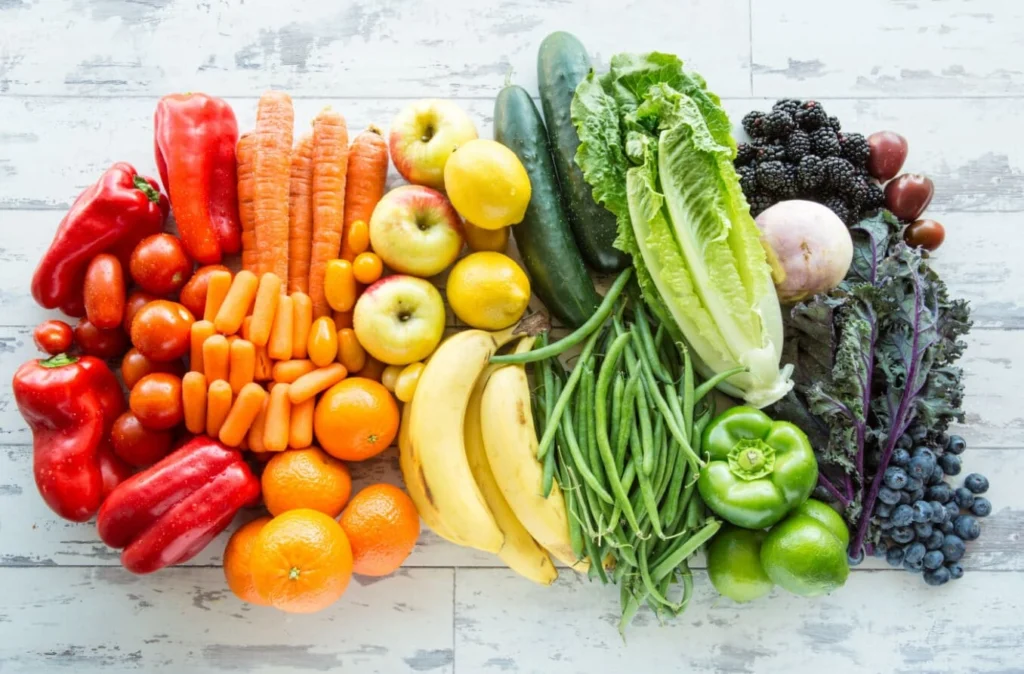Nutrition for Immune System: With all of the viruses, bacteria, and other potential health threats that surround us, having a healthy immune system is more important than ever! Your immune system is your body’s defense mechanism, made to recognize and eliminate harmful invaders.
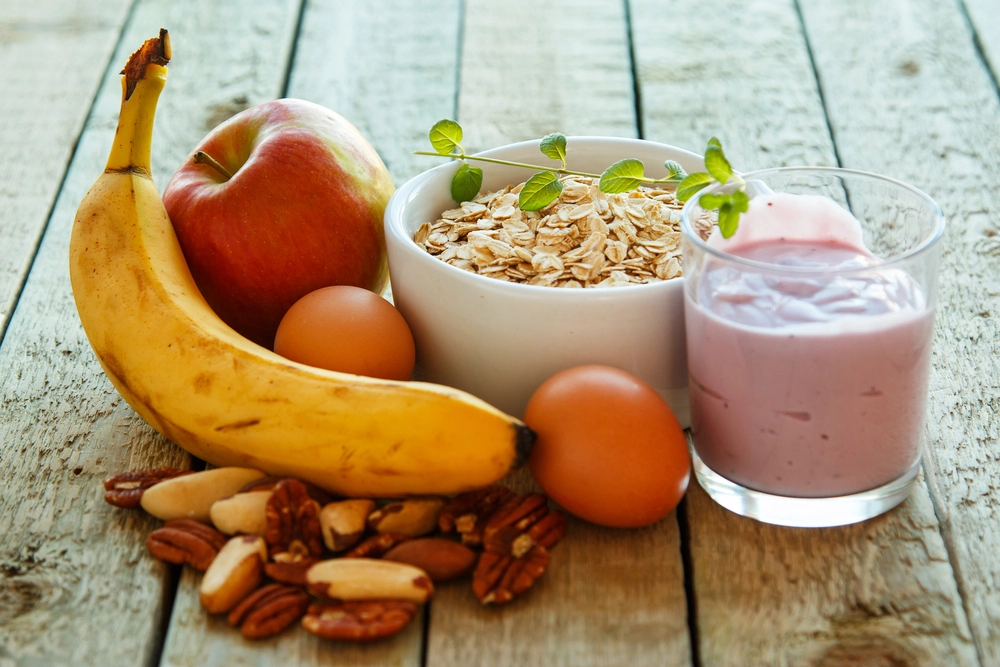
Although genetics and environment are important factors in immune health, nutrition may be the most powerful, accessible tool for promoting and improving immune function. Because, as this post explains, the right foods and nutrients can help support your body’s natural defenses and empower you to live a healthier life.
Immune System Basics
Before we jump into the nutrition, we need to talk about how the immune system works. The immune system is a complex system of cells, tissues, and organs that work together to defend the body. It is comprised of two primary parts:
- Innate Immunity: Our first line of defense. There are physical barriers, such as skin, chemical barriers like stomach acid, and immune cells that attack invaders at random.
- Adaptive Immunity: A more complex system that works like a memory storage, remembering all the specific pathogens it has encountered to respond better and faster on re-exposure.
Good nutrition provides support for both systems, allowing the body to respond to infections sooner and recover more rapidly.
Important Nutrients for Immune Health
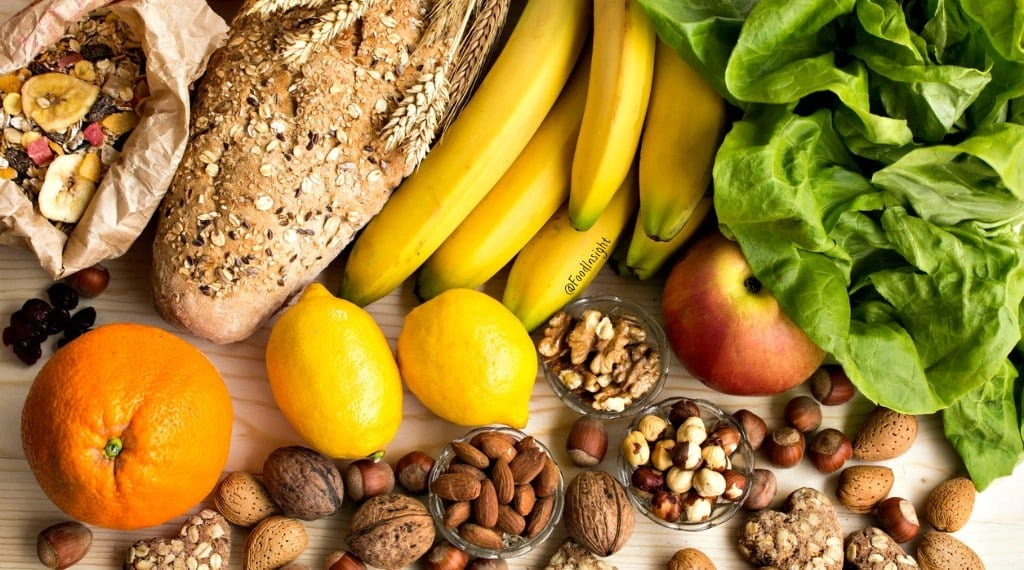
Let’s delve into the most essential vitamins, minerals, and compounds that are known to increase immunocompetence:
Vitamin C
Widely considered an immune-system superstar, vitamin C promotes the production of white blood cells and is an effective antioxidant.
- Sources: Citrus fruits (oranges, lemons), strawberries, kiwi, bell peppers, spinach, and broccoli.
- Suggested Intake: 75 mg per day for women, 90 mg per day for men (higher when sick).
Vitamin D
Vitamin D plays a role in modulating the immune response as well as activating T-cells. Insufficient levels have been associated with increased vulnerability to infections.
- Food sources: Sunlight; fortified dairy products; fatty fish (salmon, mackerel); egg yolks
- Recommended Intake: 600–800 IU/day. However, some doctors and researchers believe higher doses are ideal for immune support.
Zinc
Zinc is important for immune cell development and signaling. It is also involved in the regulation of the inflammatory response.
- Sources: Meat, shellfish, legumes, seeds, nuts, dairy.
- Recommended Daily Allowance: 8 mg/day for women, 11 mg/day for men
Vitamin A
Vitamin A, of course, helps preserve the structure of the body’s first line of defense — the skin and mucous membranes. It also plays a role in the functioning of immune cells.
- Learned: Rice, potatoes, pumpkin, squash, peas, corn
- Recommended Daily Intake: 700 mcg/day for women; 900 mcg/day for men
Vitamin E
This antioxidant helps to quench free radicals and aid the immune responses of the body.
- Sources: Nuts, seeds, spinach, and vegetable oils.
- Intake Recommended: Adults: 15 mg/day
Iron
Lymphocytes, the proliferation and maturation of immune cells, are dependent on iron for growth.
- Sources: Red meat, poultry, seafood, legumes, and fortified cereals.
- Adequate Intake: women: 18 mg/day, men: 8 mg/day
Selenium
Selenium reduces oxidative stress, which lowers inflammation, boosts immunity.
- Sources: Canned salmon, Brazil nuts, eggs, and sunflower seeds.
- Recommended daily allowance: 55 mcg.
Probiotics and Prebiotics
A strong immune system rides on a healthy gut microbiome. Probiotics are the good guy bacteria, and prebiotics are their food.
- You may also like: Yogurt, kefir, sauerkraut, kimchi, miso.
- Sources: Garlic, onions, bananas, oats, apples.
Hydration and Immunity
Not drinking enough fluid can impair immune function. It helps transport oxygen to cells and transports waste and toxins away. Staying hydrated helps keep mucous membranes moist, which helps them to trap and expel pathogens.
- Tip: Drink 8-10 glasses of water each day, upping intake as necessary if exercising, in hot weather, or unwell.
Immune-Boosting Foods
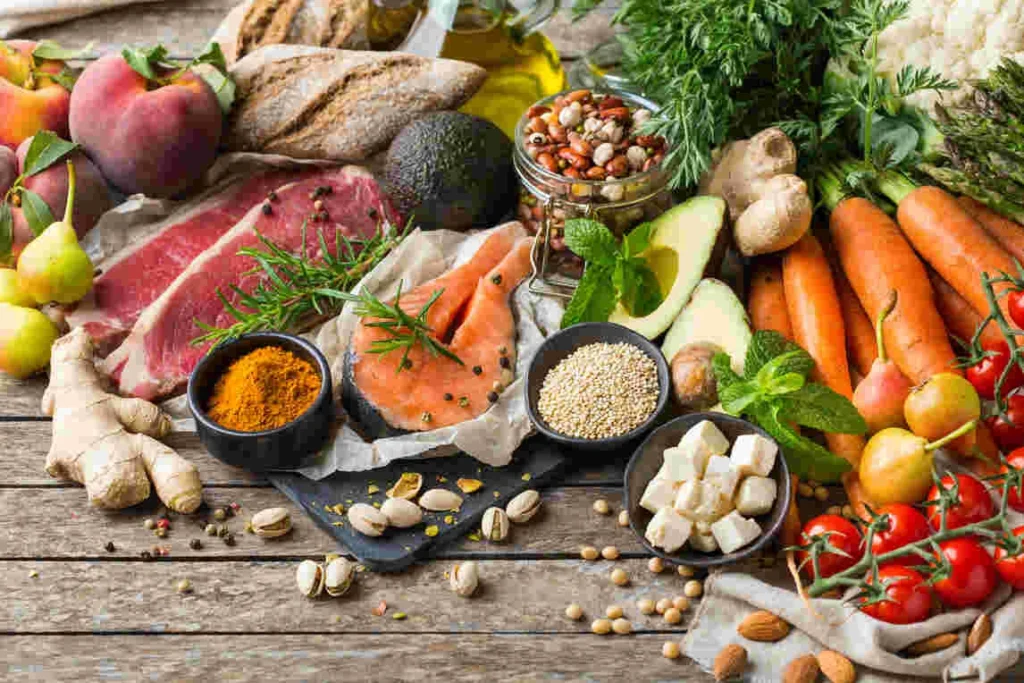
Eating foods that can boost your immune system can make a big difference in your body’s defense system. Some potent options for you are:
Citrus Fruits
- Rich in vitamin C, they boost the generation of white blood cells.
Garlic
- Contains allicin, a compound that has been shown to boost immune cell activity and decrease inflammation.
Ginger
- Exhibits anti-inflammatory and antioxidant properties. It may ease sore throat and nausea.
Turmeric
- Contains curcumin, with strong anti-inflammatory effects.
Green Tea
- High in flavonoids and EGCG, which enhance immune function and have antioxidant properties.
Almonds
- Almonds are rich in vitamin E and healthy fats, making them a powerful immune-boosting duo.
Papaya
- They are high in vitamin C and folate, and they also contain digestive enzymes to help support gut health.
Sunflower Seeds
- High in vitamin E, selenium, and zinc – all vital for immune function.
Lifestyle Factors that Go Hand-in-Hand with Nutrition
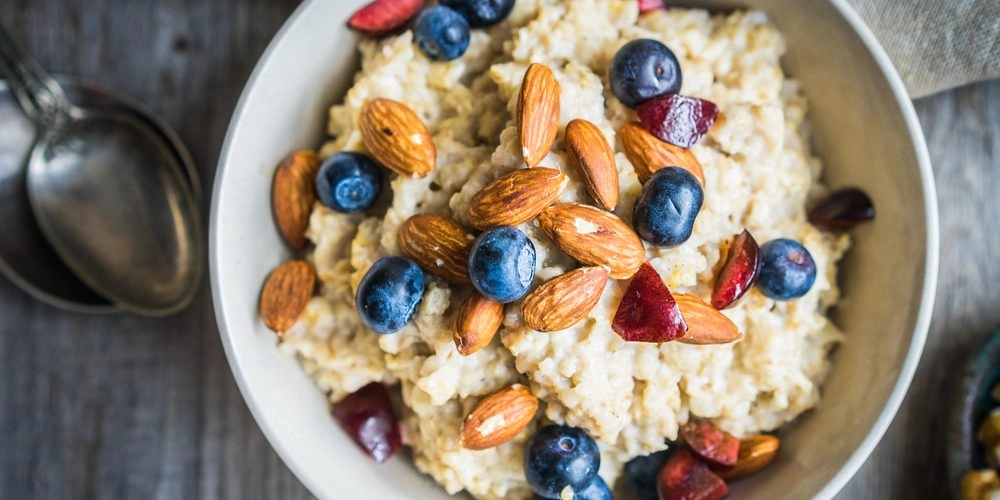
Nutrition does not operate in a vacuum. Several lifestyle factors affect your immune system:
Regular Exercise
- Moderate exercise promotes immune cell circulation and tamping down inflammation.
Adequate Sleep
- While we sleep, the body produces cytokines — a type of protein involved in the regulation of immunity.
Stress Management
- Cortisol, released during chronic stress, can suppress the immune response; meditation, yoga, and journaling help.
Not Smoking and Drinking Too Much Alcohol
- Both can damage immune cells and alter the gut microbiome.
Myths of Nutrition and Immunologic Defenses
Nutrition And The Immune System: Three Myths Explained. If it doesn’t really exist, then what are you supposed to eat? There are so many myths when it comes to nutrition and the immune system. These are a few to look out for:
More Supplements = Better Immunity
Too much can actually compromise your immune system. Do not exceed recommended daily values unless directed by a physician.
Superfoods Are a Cure-All
There’s no one food that can prevent illness. A diverse diet in moderation is more beneficial.
Sugar Totally Wipes Out the Immune System
And while too much sugar can be inflammatory and unhealthy, small amounts in an otherwise healthy diet do not spell doom.
Food: Sample One-Day Immune-Boosting Menu
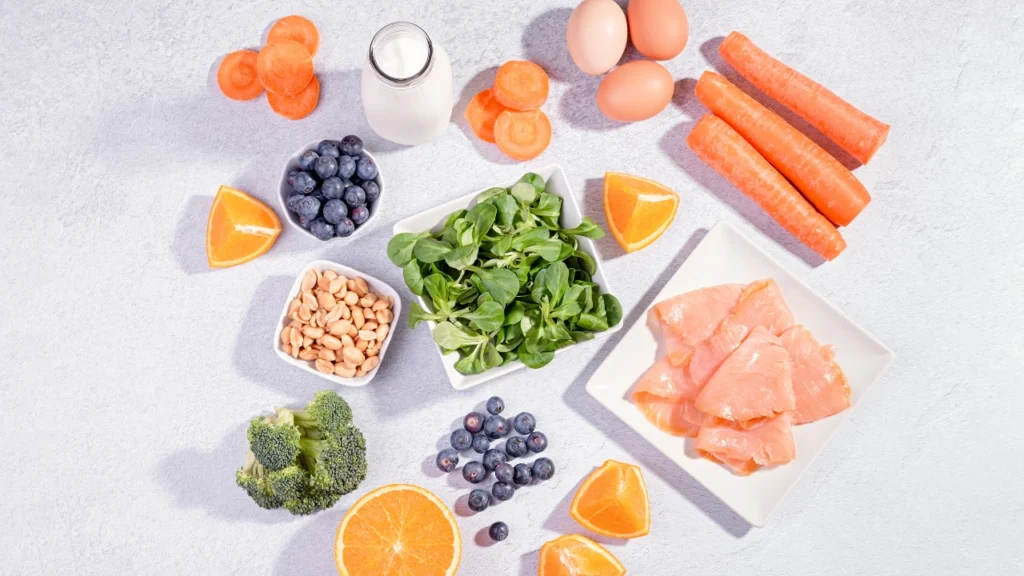
Here’s a sample daily meal plan filled with immune-boosting nutrients:
Breakfast:
- Greek yogurt with sliced kiwi and a handful of walnuts.
- Green tea
Snack:
- Orange and a few almonds
Lunch:
- Salmon salad with spinach, avocado, sunflower seeds, and lemon-olive oil dressing, grilled
- Whole-grain bread
Snack:
- Carrot sticks with hummus
Dinner:
- Tofu, stir-fried with garlic, ginger, and broccoli
- Brown rice
Hydration:
- Flavored water with lemon and mint throughout the day
Special Considerations
- Some populations may require additional immune support or specific nutritional approaches:
- Older people: Possible lower vitamin D levels & increased protein needs.
- Vegetarians/Vegans: Must obtain sufficient amounts of vitamin B12, iron, and zinc.
- Pregnant Women: Need additional iron, folate, and vitamin D.
Conclusion
Your greatest ally in combating infections and illnesses is a strong immune system. There’s no magic food or pill that will guarantee immunity, but eating a wide variety of whole foods that are full of the vitamins, minerals, and antioxidants that will bolster the body’s defenses can go a long way.
Add this to good hydration, exercise, adequate sleep and stress management and we have a broad based approach to the long term health of the immune system.
Best practices make good health begin with your plate. Eat right, live strong, and fuel your immune system to flourish.

